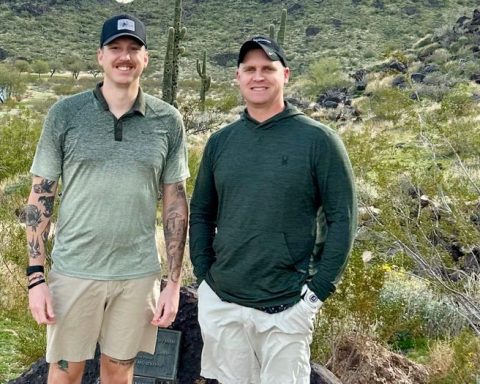A Gen Xer made $280,000 last year secretly working two full-time remote jobs in the medical field. He stated that “overemployment” helped him boost his income after struggling to secure promotions. Managing two jobs can be challenging, but he has effectively learned to handle his workload.
After spending years trying to advance in his career, Daniel discovered an alternative way to increase his earnings: secretly taking on a second full-time job. In 2020, he worked remotely as a training and customer support specialist in radiation oncology, a medical specialization focused on cancer treatments. When his company offered a three-month sabbatical with reduced pay, Daniel jumped at the chance. During that time, he took on a part-time remote position with another employer in the same industry.
This experience opened Daniel’s eyes to the possibility of balancing a side gig alongside his full-time job. When his part-time role ended, he quickly found another. By 2021, what started as a part-time gig had transformed into a second full-time position, marking the beginning of his dual employment.
Last year, Daniel’s earnings surpassed $280,000 from both jobs, each providing over $125,000 annually. He shared that the extra income has allowed him to enhance his retirement savings, complete home renovations, and fund the purchase of a second investment property in the near future. “I feel like I’m expediting my years of income-earning potential,” said Daniel, a Texas resident in his late 40s, whose name was verified by Business Insider but opted for a pseudonym due to potential professional repercussions. “I’m doubling up so I don’t have to wait a couple of years to save for something.”
Daniel is not alone; many Americans have recently engaged in “overemployment” to improve their financial situation. Over the past two years, Business Insider has spoken with over two dozen individuals who have taken on multiple remote jobs, using their earnings to pay off debts and travel. While juggling jobs can come with professional risks and the potential for burnout, many have reported that the financial benefits often outweigh these challenges.
Daniel’s journey into overemployment was driven by his frustration with trying to ascend the corporate ladder. In the early 2000s, he was a research technician for a biotech firm and believed he hit a pay ceiling there. Realizing he would need further education to progress, he enrolled in a one-year radiation oncology program, which led to higher-paying job opportunities.
After graduating in 2005, Daniel found work at a new company before eventually landing his current remote position focused on training hospital staff and providing support. Despite having a lot of downtime, he faced persistent obstacles in obtaining promotions and raises over the subsequent 14 years. This frustration was exacerbated during his sabbatical.
Accepting that his dual roles meant he couldn’t be a “star employee” at either job was a difficult shift for Daniel. His priorities shifted towards maximizing his earnings rather than seeking corporate advancement. “I’m good at handling overemployment, but I wasn’t particularly skilled at climbing the ladder,” he reflected. “I wished to be better than I actually was.”
Typically, he dedicates 40 to 50 hours a week across both jobs. Although there are weeks he works up to 60 hours, the absence of a commute frees up more time for him. He manages his schedules effectively, often working a few hours on weekends or evenings and using daytime hours for personal tasks. “Being able to set my own schedule makes it manageable,” he noted.
Although his supervisors at both jobs are aware he has a “side gig,” they are unaware that it is full-time. While some may view the practice of juggling jobs without employer consent as unethical, Daniel expressed that he feels no guilt. “The companies I work for can terminate my position at any time for any reason, so there’s no real sense of loyalty,” he stated.
Looking ahead, Daniel hopes to generate rental income from the investment property he is close to acquiring. If successful, he plans to quit one of his jobs and depend on this passive income source to add to his earnings. Balancing two jobs can be tiring; Daniel acknowledged that his wife has expressed concerns about his work arrangement being too stressful, yet she trusts his judgment regarding its viability.
Over the years, Daniel has developed skills to cope with the pressures of juggling multiple roles. For instance, he reminds himself that he can “only do one thing at a time,” a mantra that helps during particularly busy periods. “I’ve experienced many phases where the workload feels overwhelming, but it always works out as long as I maintain my composure,” he shared.








